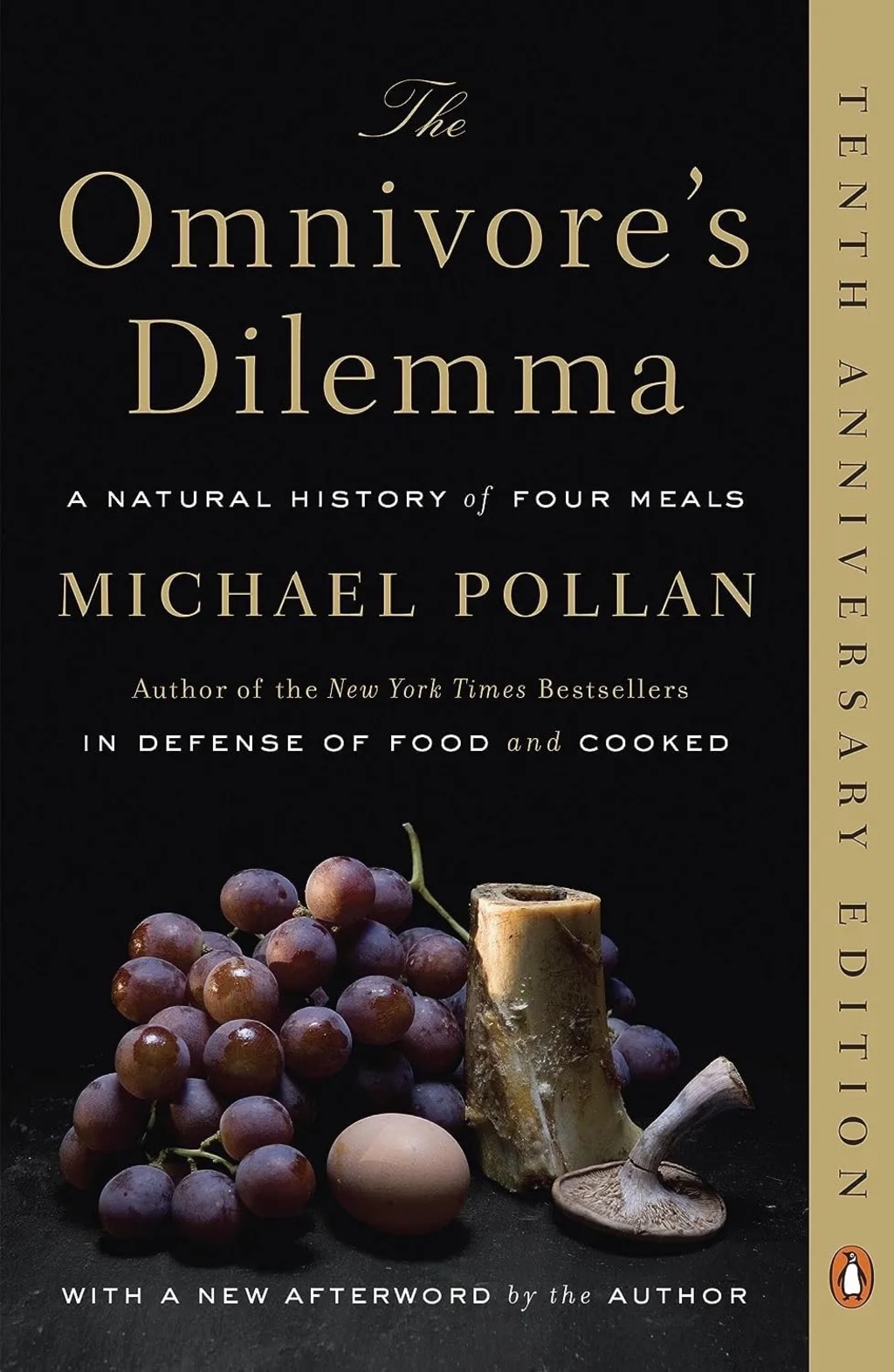Navigating the Gastronomic Maze: A Deep Dive into “The Omnivore’s Dilemma” by Michael Pollan
Why Can't We Just Eat Real Food? Because They Want Us Eating Garbage!!!

In “The Omnivore’s Dilemma,” Michael Pollan takes readers on a thought-provoking journey through the complex and often bewildering world of food. With meticulous research and engaging storytelling, Pollan explores the origins of what we eat, the industrialization of our food system, and the implications for our health, environment, and society. Let’s embark on a comprehensive review of this groundbreaking work, unraveling its key insights and implications for modern-day consumers.
Exploring the Food Chain: At the heart of “The Omnivore’s Dilemma” lies a profound exploration of the intricate web that connects food producers, consumers, and the environment. Pollan traces the journey of food from its origins on farms and ranches to the supermarket shelves and dinner tables. Through vivid descriptions and firsthand experiences, he illuminates the diverse ecosystems and agricultural practices that shape our food choices, inviting readers to reconsider their relationship with the food they eat.
2. Unveiling the Industrial Food Complex: A central theme in Pollan’s narrative is the rise of industrial agriculture and its far-reaching consequences. By delving into the inner workings of factory farms, monoculture crops, and processed food manufacturing, he exposes the hidden costs of cheap and convenient food. Through alarming revelations and eye-opening statistics, Pollan challenges readers to confront the ethical and environmental implications of supporting an industrialized food system driven by profit over sustainability.
3. The Corn Conundrum: In a captivating exploration of America’s most ubiquitous crop, Pollan unveils the pervasive influence of corn on our food system and culture. From corn-fed livestock to high-fructose corn syrup, corn has infiltrated every aspect of modern food production. Through his investigation, Pollan sheds light on the unintended consequences of corn monoculture, including soil depletion, water pollution, and health epidemics. This in-depth analysis prompts readers to reconsider the true cost of their food choices and advocate for a more diverse and resilient food system.
4. The Ethics of Eating: As consumers grapple with the ethical implications of their food choices, Pollan offers a framework for conscious eating rooted in sustainability, animal welfare, and social justice. By exploring alternative food movements such as organic farming, grass-fed livestock, and local food systems, he highlights the potential for positive change within the food industry. Through poignant anecdotes and philosophical reflections, Pollan inspires readers to align their values with their food choices, forging a path toward a more ethical and equitable food future.
5. The Hunt for Authenticity: In a quest for authenticity and connection to the source of their sustenance, Pollan ventures into the realms of foraging, hunting, and gathering. Through immersive experiences in the wild and intimate encounters with food producers, he uncovers the intrinsic satisfaction of harvesting one’s own food and participating in the natural rhythms of the land. This exploration of primal instincts and ancestral traditions offers readers a deeper understanding of the human relationship with food and the natural world.
6. The Power of Food Culture: Throughout “The Omnivore’s Dilemma,” Pollan celebrates the richness and diversity of food cultures that have evolved over centuries around the globe. From traditional foodways to culinary rituals, he highlights the role of food in shaping identity, community, and heritage. By honoring the wisdom of indigenous cultures and embracing the pleasures of slow food, Pollan invites readers to reclaim their culinary heritage and cultivate a deeper appreciation for the cultural significance of food.
7. Empowering Consumer Choice: In the final chapters of his book, Pollan offers practical advice for navigating the modern food landscape with confidence and discernment. From decoding food labels to supporting sustainable agriculture initiatives, he empowers readers to become informed and conscientious consumers. By advocating for transparency, accountability, and systemic change within the food industry, Pollan inspires individuals to become agents of positive transformation in their communities and beyond.
Conclusion: “The Omnivore’s Dilemma” by Michael Pollan stands as a seminal work that challenges readers to question the status quo of the modern food system and envision a more sustainable, ethical, and nourishing future. Through its compelling narrative and insightful analysis, this book prompts us to reevaluate our food choices, reconnect with the sources of our sustenance, and become advocates for change in our food system. As we navigate the gastronomic maze laid out before us, let us heed Pollan’s call to embrace conscious eating as a powerful catalyst for personal and planetary transformation.
CLICK HERE TO READ IT YOURSELF TODAY!!!
Disclaimer: I am an affiliate with Amazon and may receive commissions on any purchase made from this post or link with NO additional cost to you.
Thank you 🙏
Future of Resilience
About the Creator
Amy Johnson
I enjoy writing product reviews, relationships, and parenting blogs. Now, I'm excited to venture into short story writing, weaving tales that entertain, inform, and inspire.
Enjoyed the story? Support the Creator.
Subscribe for free to receive all their stories in your feed. You could also pledge your support or give them a one-off tip, letting them know you appreciate their work.






Comments (1)
Good work and interesting. I am a person that likes meat but I also like plenty of fruits and vegetables and some dairy.